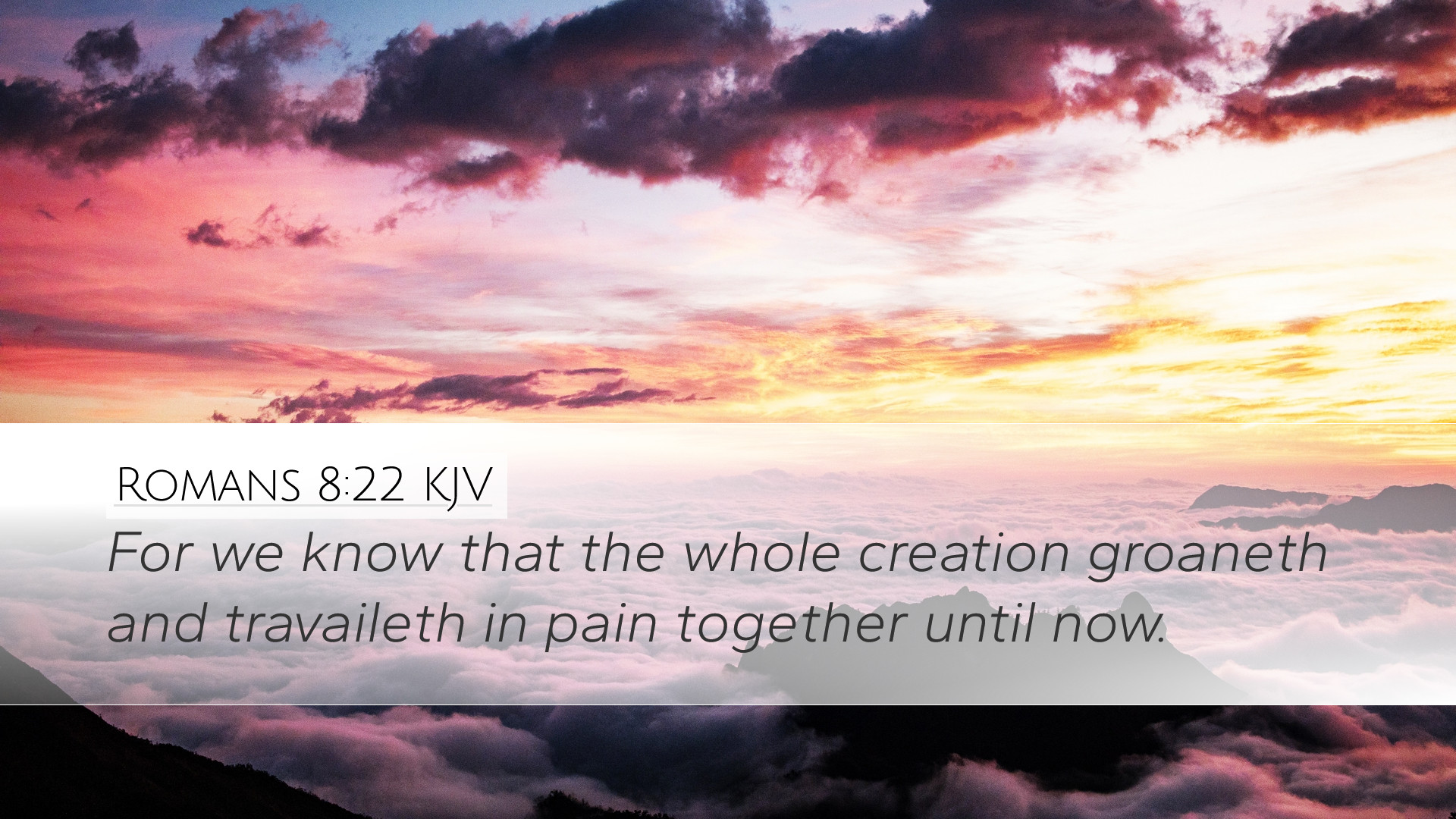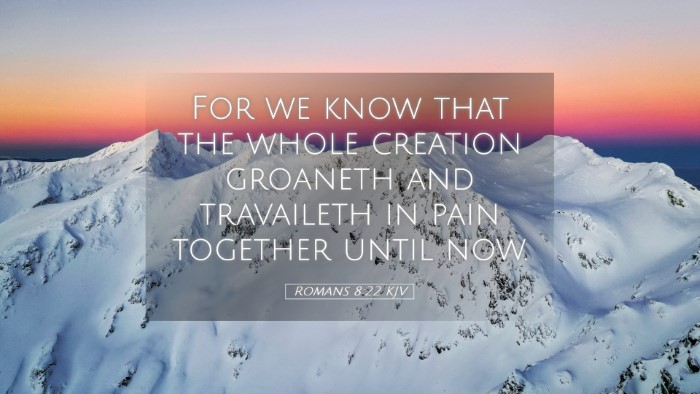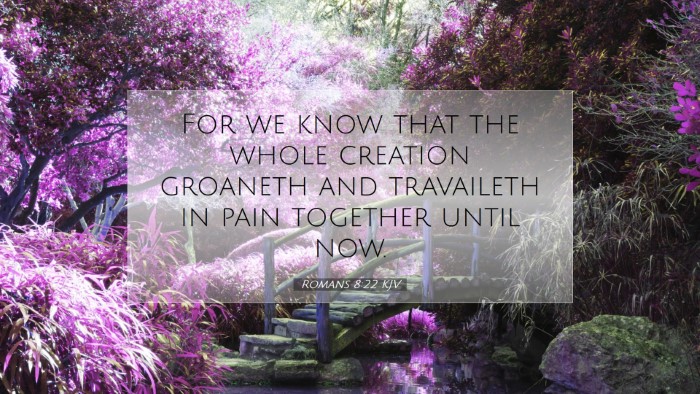Commentary on Romans 8:22
Romans 8:22 states: "For we know that the whole creation groans and labours with birth pangs together until now." This verse serves as a profound reminder of the suffering and hope that coexists in the created order and encapsulates the theological themes of anticipation, redemption, and the cosmic impact of sin. Below, we explore various insights drawn from notable public domain commentaries including Matthew Henry, Albert Barnes, and Adam Clarke.
The Context of Romans 8
Before delving into the verse itself, it is crucial to understand the context within which Paul writes. Romans 8 is a chapter that offers rich theological discourse focused on life in the Spirit and the believer’s ultimate victory in Christ. The apostle outlines the struggles faced by believers and contrasts them with the glory that is to be revealed.
The Meaning of "We Know"
Paul begins with the phrase "For we know", which signifies a shared understanding among believers. Albert Barnes emphasizes that this knowledge arises from faith and spiritual insight. It points to an assured faith that transcends both personal experience and observation, grounding believers in a communal hope rooted in the promises of God.
The State of Creation
The phrase "the whole creation groans and labours" paints a vivid picture of the current state of the world. Matthew Henry notes that the entire created order is in a state of decay and distress due to the Fall. He elaborates that the groaning signifies not just physical suffering but also a deep spiritual longing for redemption.
- Groaning as a Metaphor: This metaphor captures the essence of creation’s struggle, akin to a woman experiencing the pangs of childbirth.
- Labour Pangs: Adam Clarke mentions that these "birth pangs" indicate an impending birth, symbolizing hope for renewal and restoration.
Cosmic Implications of Sin
The ramifications of sin extend beyond humanity, affecting the entirety of creation. Both Barnes and Henry expound on how the disorder introduced by humanity’s rebellion has reverberated throughout the natural world. This fallen state manifests in various forms: natural disasters, famine, and the general corruption of God’s original design.
Hope for Redemption
Despite the present suffering, Romans 8:22 does not end in despair. Instead, it invites believers to hold onto hope. Paul’s description of creation’s groaning is tied to the greater reality of redemption through Christ. Clarke remarks that creation's suffering is not in vain, but it anticipates a glorious future.
- Future Glory: The "birth pangs" signal not only discomfort but the promise of new life—an allusion to the future revelation of the sons of God.
- Creation's Anticipation: Just as a mother eagerly awaits the birth of her child, so too does creation await its redemption, signifying its restoration to its intended glory.
Theological Implications for Believers
For pastors and theologians, this verse underscores the role of creation in the eschatological narrative. It invites reflection on the temporary nature of suffering and the ultimate victory of God’s plan. Henry encourages believers to view their troubles through the lens of hope, as they labor alongside creation in anticipation of future restoration.
Personal and Corporate Application
Students and scholars alike can draw parallels between the groaning of creation and the personal struggles faced in daily life. The concept encourages an understanding of the Christian walk as one that involves both suffering and hope. This duality calls for a deeper engagement with creation—reminding believers of their stewardship responsibilities.
- Stewardship of Creation: The groaning of creation should incite believers to act as caretakers rather than exploiters of the natural world.
- Community Reflection: Churches can embody a community that acknowledges the struggles inherent in the human experience while uplifting one another in hope.
Conclusion
In summary, Romans 8:22 provides a rich theological foundation for understanding the cosmic implications of sin and the hopeful anticipation of future redemption. Through the insights of Matthew Henry, Albert Barnes, and Adam Clarke, we glean a holistic perspective that encapsulates both the present reality of suffering and the promise of renewal. This verse serves not just as a reminder of the current state of creation, but also as an encouraging promise that the struggles we encounter are part of a redemptive narrative that points toward a glorious future.


